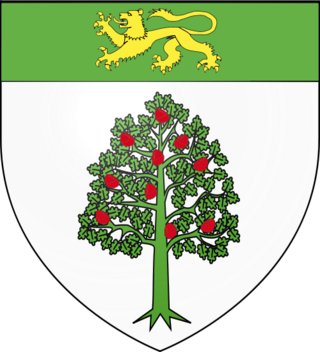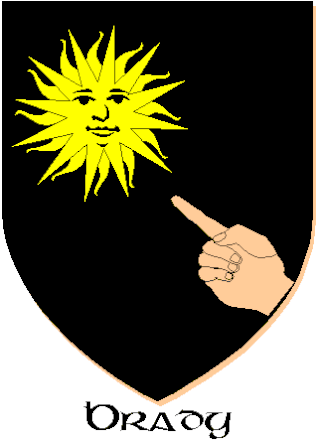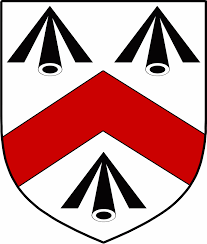Notable people with the surname Harte include:

Murphy is an Irish surname and the most common surname in the Republic of Ireland.
Manning is a family name.
Brennan is an Irish surname which is an Anglicised form of two different Irish language surnames—Ó Braonáin and Ó Branáin. Historically, one source of the surname was the prominent clan Ua Braonáin (O'Brennan) of Uí Duach (Idough) in Osraige who were a junior Dál Birn sept stemming from a younger son of Cerball mac Dúnlainge (d.888). Recent surname evaluations highlighted the geographic consistency of this lineage in the barony of Idough. However, based on the ultimate authority of Dubhaltach Mac Fhirbhisigh they are out of Ui Dhuinn (O’Dunn) and, therefore, an Uí Failghi tribe, not Osraige. While it is clearly apparent that O’Hart’s pedigree is erroneous, it is suggested that Ó Cléirigh probably became confused while transcribing from Mac Fhirbhisigh. This is echoed by the modern scholar, Bart Jaski.
MacLean, also spelt Maclean and McLean, is a Gaelic surname Mac Gille Eathain, or, Mac Giolla Eóin in Irish Gaelic), Eóin being a Gaelic form of Johannes (John). The clan surname is an Anglicisation of the Scottish Gaelic "Mac Gille Eathain", a patronymic meaning "son of Gillean". Gillean means "the Servant of [Saint] John [the Baptist]"), named for Gilleathain na Tuaidh, known as "Gillian of the Battleaxe", a famous 5th century warrior.

Brady is a surname derived from the Irish surname Ó Brádaigh or Mac Brádaigh, meaning "spirited; broad".
MacDonald, Macdonald, and McDonald are surnames of both Irish and Scottish Origin. In the Scottish Gaelic and Irish languages they are patronymic, referring to an ancestor with given name Donald.
Doherty is an Irish surname. It is anglicized of the Gaelic Ó Dochartaigh.
The surname Duff has several origins. In some cases, it is an Anglicised form of the Gaelic Ó Duibh, Mac Giolla Duibh, Mac Duibh. The surname Duff is also sometimes a short form of Duffin, and MacElduff, and Duffy.

Kavanagh or Kavanaugh is a surname of Irish origin, Caomhánach in Irish. It is properly Mac Murchadha Caomhánach, but is often now rendered 'Caomhánach' or rarely 'Ó Caomhánaigh'.
Ryan is a common surname of Irish origin, as well as being a common given name in the English-speaking world.
Duncan is a Scottish and Irish surname. For the etymology of the surname Duncan this web page cites: Dictionary of American Family Names. Another opinion is that the Gaelic Donnchadh is composed of the elements donn, meaning "brown"; and chadh, meaning "chief" or "noble". In some cases when the surname originates in County Sligo, Ireland, it is an Anglicized form of the Irish Gaelic name MacDonough or Mac Donnchadha and Ó Duinnchinn, meaning "descendant of Donncheann". The Gaelic Donncheann is a byname composed of the elements donn, meaning "brown-haired man" or "chieftain"; and ceann, meaning "head". The surname Duncan is represented in Scottish Gaelic as MacDhonnchaidh. The surname also originated from the given name Duncan.

Burke is an Anglo-Norman Irish surname, deriving from the ancient Anglo-Norman and Hiberno-Norman noble dynasty, the House of Burgh. In Ireland, the descendants of William de Burgh had the surname de Burgh which was gaelicised in Irish as de Búrca and over the centuries became Búrc then Burke and Bourke.

Walsh is a common Irish surname, meaning "Briton" or "foreigner", literally "Welshman" or "Wales", taken to Ireland by soldiers from Britain, namely Cambro-Norman/Welsh, Cornish and Cumbrian soldiers during and after the Norman invasion of Ireland. It is most common in County Mayo and County Kilkenny. It is the fourth most common surname in Ireland, and the 265th most common in the United States. There are variants including "Walshe", “Welch”, "Welsh", "Brannagh", and the Irish "Breathnach". Walsh is uncommon as a given name. The name is often pronounced "Welsh" in the south and west of the country. In Great Britain, Guppy encountered the name only in Lancashire. It is the surname of the Barons Ormathwaite.
Lawlor is an Irish surname. It may refer to:

Kelly is a surname in the English language. The name has numerous origins, most notably from the Ui Maine. In some cases it is derived from toponyms located in Ireland and Great Britain, in other cases it is derived from patronyms in the Irish language.
Fox is a surname originating in England and Ireland. The derivation is from the Middle English "fox", itself coming from the Old English pre 7th century "fox". The surname first appears on record in the latter part of the 13th century, with the first recorded spelling in 1273 to be that of John Fox in the "Hundred Rolls of Yorkshire", England. In Ireland, Fox is mainly a translation of the Old Gaelic "Mac a'tSionnaigh".
Casey is a common variation of the Irish Gaelic Cathasaigh/Cathaiseach, meaning vigilant or watchful. At least six different septs used this name, primarily in the Counties of Cork and Dublin.
Clarke is a surname which means "clerk". The surname is of English and Irish origin and comes from the Latin clericus. Variants include Clerk and Clark. Clarke is also uncommonly chosen as a given name.
Stack is a surname of English origin and is commonly found in county Kerry, Ireland. Variants of the name Stack include Stace, Stacey, Stacy, Stacke and De Staic. It is a baptismal name meaning "Son of Eustace", a Roman name of great antiquity.
Quinn is an Anglicised form of the Irish Ó Coinn or Mac Cuinn. The latter surname means "descendant of Conn". The surname Quinn is also rendered Ó Cuinn or Mac Cuinn in Irish. The surname is borne by several unrelated families in Ireland, especially in the northern province of Ulster and also the counties of Clare, Longford, and Mayo. The most notable family of the name are that of Thomond, a Dalcassian sept, who derive their surname from Niall Ó Cuinn who was slain at the Battle of Clontarf in 1014. This family was formerly represented by the Earls of Dunraven. Another family is that seated in Annaly, who were related to the O'Farrell lords of Longford. Another Quinn family was seated at An Chraobh, County Tyrone and they were related to the O'Neill Kings of Tír Eoghain and for whom they acted as Hereditary Quartermasters. Other families include one seated in Antrim; one seated in Raphoe; and one called Clann Cuain, seated near Castlebar. In the seventeenth century, the surname Quinn was common in Waterford. In 1890, the surname was numerous in Dublin, Tyrone, Antrim, and Roscommon. Quinn is one of the twenty most common surnames in Ireland. It is sometimes said that the surname Quinn is borne by Catholics whilst Quin is borne by Protestants.